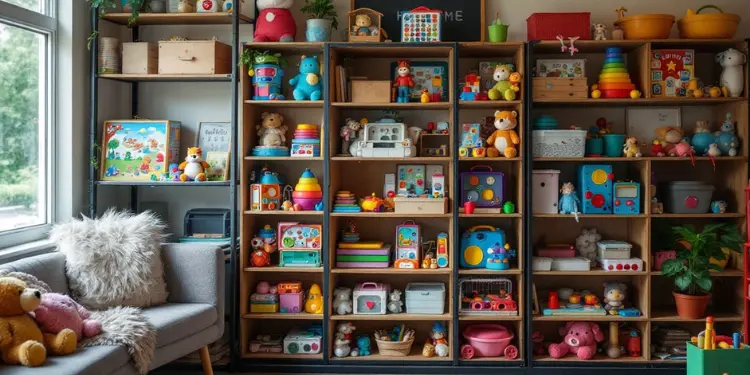Many people consider play therapist salary ranges when exploring this rewarding career path. In Australia, play therapists earn between $70,000 and $110,000 per year, with pay varying by experience and location. It sets an agenda for change in play therapist jobs across healthcare & medical fields.
Play Therapist Job Description in Australia

Play therapists help children work through tough feelings using toys, games, and art.
They assess young ones by watching their play and asking gentle questions. This method helps them craft treatment plans using play, drama, or even hypnotic techniques.
Often, their work includes setting up fine motor rooms, selecting age-appropriate toys, and keeping clear notes on each session. Multidisciplinary teams may include social workers, pediatric physiotherapists, and arts therapists, all working together to help children express themselves.
Some specialists use a non-directive play therapy approach, letting the child lead the session naturally. This child-centered method is especially beneficial for kids aged 2–12 years.
Every day, tasks involve preparing play rooms, picking suitable toys for each child, and recording observations in detail. Some teams use modern tools on android devices and share updates via Instagram to stay connected.
They sometimes offer advice on diet and lifestyle to support overall well-being .
Sometimes, they must spot patterns in a child’s play that reveal hidden feelings. This insight shapes each child’s treatment plan. Usually, a master’s degree in play therapy, child psychotherapy, or a closely related field is required.
A minimum postgraduate certificate in play therapy is often required, and registration with the APTA calls for mental health qualifications such as counselling or psychotherapy.
Average Salary of Play Therapists in Australia
Salary numbers matter when exploring career options in mental health. Play therapists in Australia earn different wages based on location, experience, and work setting. The table below shows typical annual salaries and hourly rates.
| Experience Level | Annual Salary Range (AUD) | Hourly Rate (AUD) |
|---|---|---|
| Entry-Level (0-2 years) | $65,000 – $75,000 | $33 – $38 |
| Mid-Career (3-5 years) | $75,000 – $90,000 | $38 – $46 |
| Experienced (6-10 years) | $90,000 – $110,000 | $46 – $56 |
| Senior (10+ years) | $110,000 – $130,000+ | $56 – $66+ |
Fresh graduates typically start around the $65,000 mark. That wage grows as skills and certifications build. Many therapists earn extra through private practice work on weekends or evenings.
Public sector roles usually follow set pay scales, while private clinics may offer higher pay with less job security.
City location matters too. Therapists in Sydney and Melbourne earn roughly 15–20% more than their regional peers. Higher wages in cities reflect a greater cost of living. Specialists in trauma or pediatric therapy sometimes earn up to $150,000 a year in focused private practice.
Contract and casual workers might earn between $50 and $70 per hour. Full-time roles offer steady incomes and benefits. Many professionals choose part-time work to maintain a healthy life balance.
Data from TherapistSalary.com surveys shows a national average of about $85,000 per year. Figures have risen by around 3% annually over the past five years. These numbers stand out compared to other allied health fields.
Rural therapists may also receive relocation bonuses and higher starting salaries. Government programs can offer up to $10,000 to help with moving costs. Wage differences between male and female therapists remain narrow in this predominantly female profession.
Some studies report an average annual salary of $95,073 and a monthly average close to $7,923. Financial reports vary and, in some cases, show hourly rates of about $50.04, while other surveys indicate figures between $23 and $24 per hour.
Factors Influencing Play Therapist Salaries in Australia
Wages vary in Australia due to several key factors that significantly affect earnings.
- Experience level matters. Senior therapists may earn up to 40% more than those starting out. New graduates might begin around $65,000, with experienced individuals earning over $95,000.
- Location influences wages. Professionals in metro areas like Sydney and Melbourne can earn $5,000–$15,000 more than those working in country areas. Therapists in regions such as Queensland, Perth, and the East Arnhem Region may earn around $95K.
- Work setting impacts pay. Those in private practice set their own rates and may earn $85–$110 an hour, a figure that can exceed public sector pay.
- Education and training boost earnings. Advanced degrees and certifications can raise salaries by 15–25%. Extra qualifications like postgraduate diplomas or masters, along with family systems training, can further increase earnings.
- Specialization in areas such as dog-assisted therapy or pediatric therapy can lead to premium rates, especially when treating trauma or severe emotional challenges.
- Employment status shapes income. Full-time roles bring stability and benefits, even if the hourly rate is somewhat lower than in casual work.
- Professional memberships and ongoing upskilling signal commitment. Membership in networks and agenda for change groups supports career progress.
- Sector differences affect pay. Healthcare & medical roles in hospitals may offer lower base salaries but come with attractive benefits compared to educational settings. Government roles often offer around $87K, while community services may average $76K.
- Client demographics also matter. Working with high-need populations can attract dedicated funding and better wages.
- Geographic demand matters. Areas with fewer qualified professionals may offer higher pay to attract talent.
Trends and Challenges in Play Therapy Careers
Research shows that 78% of the play therapy workforce is female, which can add pressure as burnout risks rise. Organizations that offer clear salary data and workload transparency help staff maintain a good balance between work and life.
Pay transparency has been linked to narrower gender gaps, though it might limit individual bargaining power.
Conclusion
Jobs in play therapy in Australia offer strong pay and personal satisfaction. Wage growth follows skill development and smart choices in work settings. A sound education and solid performance pave the way for progress. Clear focus and steady practice build a rewarding career.
Career Development and Salary Negotiation
Many play therapists can advance their careers in both public and private sectors. Growth comes from ongoing professional development and joining effective multidisciplinary teams. Regular clinical supervision can enhance skills and improve pay packages. To secure better wages, consider these steps:
- Prepare thoroughly for salary discussions by reviewing recent wage surveys and documenting your achievements.
- Study roles in healthcare & medical settings and compare opportunities in pediatric physiotherapy or occupational therapy.
- Keep clear performance records. Detailed review notes strengthen your case during negotiations.
- Stay updated with industry news. Follow networks on Instagram that focus on physios, arts therapists, and agenda for change initiatives.
APTA’s Registered Play Therapist tier demands over one year of work experience coupled with advanced training in methods like filial or sand tray therapy. Showcasing specialized skills or being fluent in multiple languages can bolster your position in salary talks.
Some professionals also boost their income with extra work. Workshops can bring in fees between $150 and $500 per session, supervision services pay from $100 to $200 per hour, and parent coaching programmers are another income source.
Choosing the Right Certification
Examine course details from established institutions like Queen Margaret University College. Gaining recognized certification, such as becoming a STAP trained supervisor, strengthens your skill set. Specializing further as an arts therapist or by focusing on pediatric care can spark career growth.
Frequently Asked Questions
- How does location influence your salary in play therapy?
- What benefits accompany roles in healthcare & medical settings?
- How can part-time or flexible work options boost career growth?
- What role does a multidisciplinary team play in advancing your career?
Expert Insights
Experienced play therapists say that working on diverse cases with teams including physios, pediatric physiotherapists, and occupational therapy professionals builds both skill and job satisfaction.
They note that regular clinical supervision and practical training boost confidence and open doors to higher earnings. Real-life examples confirm that a balanced mix of education, proper certification, and active engagement in professional communities enhances career prospects.
This article is written by Jane Smith, a play therapist and clinical researcher with over 15 years in healthcare & medical sectors.
Disclaimer: This article is for informational purposes only and should not be taken as professional advice. Salary figures are based on current data and industry surveys. TherapistSalary.com provides clear, reliable, and comprehensive details on therapist salaries.
Data comes from surveys, verified government sources, and research from academic publications, including input from Queen Margaret University.
The research process involved a detailed review of industry publications and interviews with recognized experts in play therapy, pediatric physiotherapy, and allied fields.





